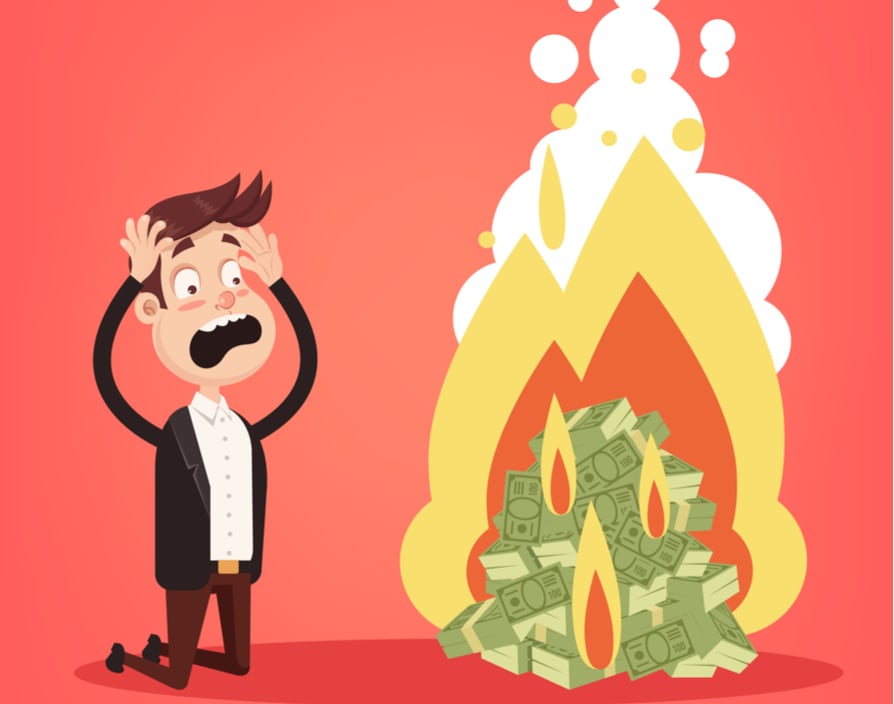On the entrepreneurial journey it’s common to have potential deals stacking up on your table and other chieftains giving offers to buy or invest in your business. While it’s always better to think before taking decisions, business people have turned down offers what could have changed their company 360 degrees.
Whether it was publishers lost out on billions of dollars when they rejected J.K Rowling’s novels about a little boy named Harry Potter or Western Union turning down the Bell telephone offer, head honchos have closed the door when huge financial opportunities came knocking and we’re willing to bet they’re still regretting it.
But as any entrepreneur worth their salt will tell you, someone else’s mistake is just another opportunity to learn. So take this chance and learn from the ten chieftains who could have been cashing billions and been in the headlines for all the right reasons if only they took better decisions.
(1) Blockbuster busted
Blockbuster may’ve ruled the 1980s but today Netflix and other streaming platforms have completely changed the game. However, Blockbuster could’ve ruled supreme to to this day if only their bosses made better choices. Let’s rewind to 2000 when Netflix offered Blockbuster the chance to buy the business for $50m. In an estimate he’s sure regretted since, CEO John Antioco claimed that he saw Netflix and the entire concept of DVD-by-mail as more of a “niche business” that wouldn’t grow into anything as profitable as what he was doing. Antioco just couldn’t imagine seeing Netflix laugh all the way to the bank while Blockbuster had to file for bankruptcy in 2010 and the last stores in Alaska was announced to close in July 2018. Today, Netflix is valued at over $140bn, according to Bloomberg, and we’re willing to bet some of the old Blockbuster crew may feel very sheepish right about now.
(2) Why this mogul ogles Google
Coming across an unfathomable word, we rarely tell each other to search online. Instead it’s “Google it”. While the company is today valued at just over $300bn, Google founders Larry Page and Sergey Brin tried to sell Google to Excite CEO George Bell for a mere $750,000 in 1999. The latter rejected the offer and Excite went on to be acquired by Ask Jeeves in 2004 and became what we know as Ask.com. Today when Google dominates the internet it’s fair to assume Excite made the mistake of a lifetime. Want to know more? Well, you know what to do then, don’t you?
(3) Buy Google for $1m?
It seems that Google couldn’t find anyone to buy the business. Years after Excite declined to acquire the future tech titan, Google tried to get Yahoo to buy it at a humble $1m. But Yahoo rejected the deal. After a few years it realised its mistake and offered to acquire it for $3bn. By then Google’s leadership had become a bit more bullish and asked for $5bn, which Yahoo declined. Fast-forward and it’s clear who came out on top. While Google has been on a steady upward trajectory, Yahoo was sold to Verizon for less than $5bn in 2016. Talk about missed opportunities.
(4) Mars’ movie misfortune
Mars, the company that makes M&Ms, was approached to do an advertising deal with E.T. the Extra Terrestrial by Steven Spielberg in 1982. The idea was that M&Ms would be featured in the movie and Mars could use E.T. for ads going forward. But oddly, Mars chose to shut the door on that one. Instead, Hershey agreed to spend $1m promoting the movie in exchange for the rights to use it in their advertising efforts and cashed in with a 65% increase in profits for Reese’s pieces which was seen in the movie. E.T. then made a total of $792m worldwide. Clearly not something the marketing team at Mars phoned home about.
(5) Hello Goodbye
Fans of rock music will agree that it’s hard to believe a company could think the Beatles wouldn’t have a future in show business. However, when Decca Records owner Dick Rowe had the opportunity to sign the band he declined, claiming “guitar groups are on their way out.” Ringo Starr, John Lennon, Paul McCartney and George Harrison were later signed by EMI Records and subsequently went on to sell 178 million records. We’re sure that there were many twists and shouts as well as a few hard days’ nights at the Decca head office at the height of Beatlemania.
(6) The one who rejected to be Microsoft’s owner
Ross Perot, founder of Electronic Data Systems (EDS), was a huge name in tech in the 20th century. And rightly so, having invested $1,000 investment in EDS into a company worth around $1bn in less than two decades. Still, he deserves a mention on this list after he turned down a chance to buy a small company called Microsoft.for between $40m and $60m back in 1979. He openly regretted rejecting the deal back in 1992. You can only wonder what he thinks today when Microsoft is expected to follow Apple and Amazon past the $1tn valuation benchmark before the end of 2018.
(7) RealNetworks rejected the iPod
Steve Jobs is usually hailed as the driving force behind Apple’s success but let’s not forget that the iPod’s creator Tony Fadell also played a huge role in the company’s fortunes. Having left Philips, he originally went to work at RealNetworks. Inspired with his experience of carrying around heavy boxes packed with records from his days as a DJ, he pitched the idea of a sleeker MP3 player to his new employer only to be turned down. Having confidence in his idea, he left his job and pitched the idea to Jobs. The rest is history. Within two months of its roll out in 2001, Apple had sold almost 125,000 iPods. Since then Fadell has moved on to launch Nest Labs, the smart-home appliances company, which he resigned from in 2016.
(8) Merger gone wrong
When announced in 2000, the merger between American Online and Time Warner was described by Stephen M. Case, co-founder of AOL, as “a historic moment”. The news sent a wave of shock and horror among the two companies’ competitors. Together, these internet provider and the entertainment company seemed set to become an unstoppable force as AOL Time Warner. But then the dotcom bubble burst. Suddenly, AOL’s advertisement revenue evaporated and the company was forced to accept a goodwill write-off of $99bn in 2002. At the end, the value of AOL dropped from $226bn to roughly $20bn. A demerger agreement came in subsequent years. The deal caused major damage to the companies and it’s often quoted as one of the worst cautionary tales of mergers-gone-wrong ever.
(9) Groupon says no to Google
Doing it’s third and final entry on this list, Google for once wasn’t trying to be acquired by any other company. Instead it sought to acquire social buying site Groupon back in 2010. At the time it was gathering more than $1bn in annual revenue. Google offered the company a $6bn buyout and Groupon CEO Andrew Mason rejected the offer. After the rejection, Groupon’s popularity waned and its profits plummeted. Groupon fired Mason but still has to live with the missed opportunity of losing billions.
It’s indeed true that business is a gamble. Knowing when to cash out is what can make or break you. In the examples above, business moguls have seen the consequences of missing out on a golden ticket. However these key moments of regrets are a good lesson for entrepreneurs to ensure they have enough time to ponder on a decision.![]()
Share via:


















































